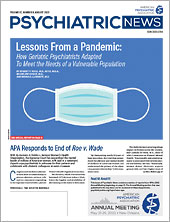Professor Peter Brooks, the interdisciplinary Yale scholar with an acute interest in narrative, has cautioned us about the problem of perspective in stories (Yale Journal of Law and Humanities 18: 1-28, 2006). He appreciated fully storytelling’s role in our quest to understand human beings and their behaviors. He also grasped the potential of narrative to mislead. Brooks’ cautions come alive whenever I read press reports of important events, such as the tragic school shooting in Uvalde, Texas. We wake up commonly enough these days to all forms of media announcing what has happened: the violence, the gratuitous loss of life, the waste of human and material resources, and the ritualized putting-on of sackcloth and ashes to atone for our failure to find solutions. In the face of these crises, narratives take on urgency. Many of the narrators claim objectivity and neutrality. When those who have suffered are children, it is understandable that the nation comes together and worries. Eventually, political interests formulate polarizing suggestions that primarily protect their territory, while striving to dominate the discourse and leave untouched the heart of the violence problem.
In reviewing the Texas school incident, I did not work very hard at recognizing the plethora of positions concerning access to weapons and maintenance of schools as safe spaces devoid of guns. I had considerable practice at this when I served on the commission examining the Sandy Hook School shooting in Connecticut. This is what characterizes the marketplace following these tragic events. There are many people from all walks of life commenting on a variety of elements from a multitude of vantage points. They follow the traditions of narrators, coloring the stories to reach certain objectives. I make no condemnations of this practice; I simply draw attention to the obvious: It is common in the reporting of events. After all, Brooks has told us that narrative is perspectival. Despite this bustle of activity and the significant effort expended to describe the context of each school event, there often seems to be modest inquiry about the perpetrator. In fact, I have noted efforts to obliterate their identities, with accompanying claims that making these perpetrators visible in any way is a misguided celebration of their deeds.
There is another technique for dealing with the perpetrators, described by Gwen Adshead, a forensic psychiatrist and colleague. She has talked about our penchant for creating “monster stories,” a term that I simply cannot stop from coming into view as I read accounts of these school shootings. In other words, do these individuals have any redeeming features? Is there any aspect of humanity in them? Do they resemble us in any way? In my experience with the aftermaths of these events, I have recognized that, for several reasons, the stories about the perpetrators are generally incomplete and, in Brooks’ terms, not sufficiently plausible. There are specialized ethics rules and general societal dictates that account for some of this. I wonder whether there are other impediments to engaging with some modest theorizing about them. I think we are afraid of seeing any of ourselves in them or even recognizing that social and biological elements play some part, even if modest, in the creation of these individuals.
Adshead is the author of a book with Eileen Horne about people who commit horrific acts of violence, whom we can easily classify as monsters (The Devil You Know: Stories of Human Cruelty and Compassion, New York: Scribner, 2021). In its introduction, Adshead offers the invitation to read about these people, to give up our “fear, intolerance, or denial.” She concedes readily that it will demand of us a “radical kind of empathy.” She acknowledges that we may well ask whether the subjects have any right to “emotions like love or sorrow or regret.” She assures the reader, nevertheless, that taking the dive will lead to “individual people, not data points or mythical creatures.”
The excursion may well transform our lives. Adshead suggests that getting a closer look at those who cause such havoc in our communities may cause an expansion of the limits of empathy. We may then recognize humanity in them and sprinkle greater compassion in our reactions to the baffling events they produce. My hope is that increasing authenticity and authorial responsibility in these narratives about community violence might lead to solutions that benefit the community. ■

